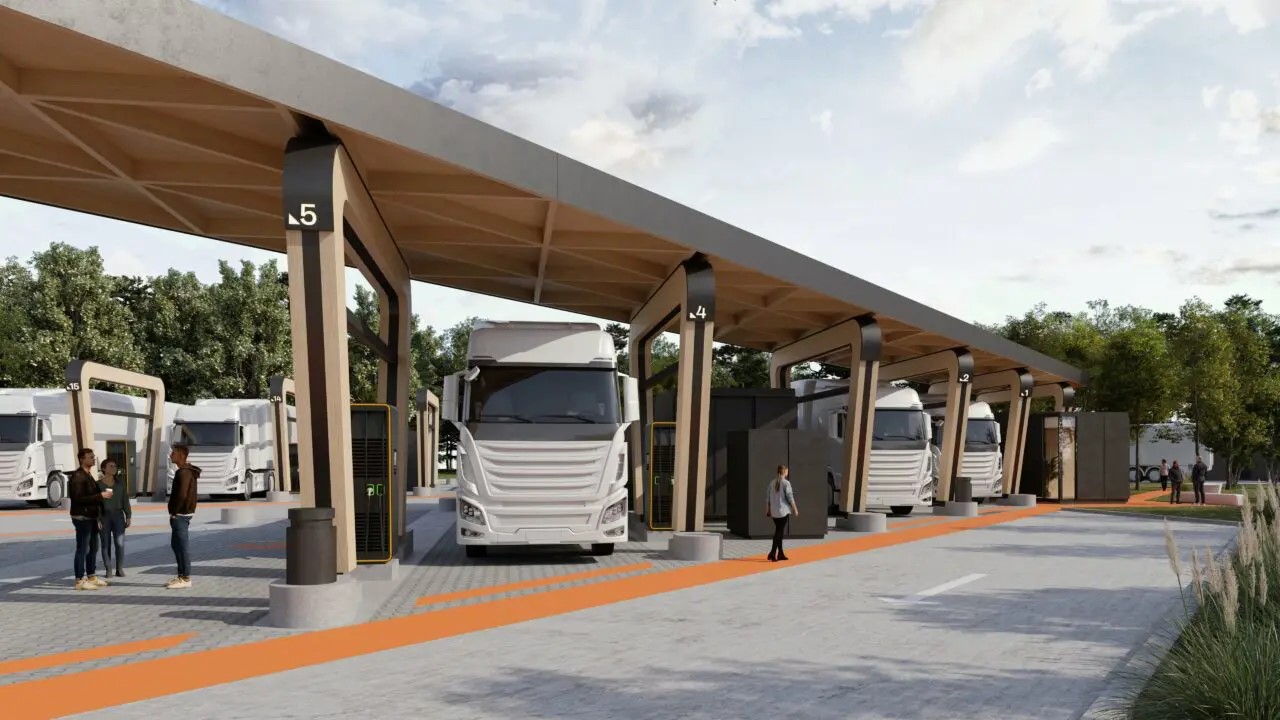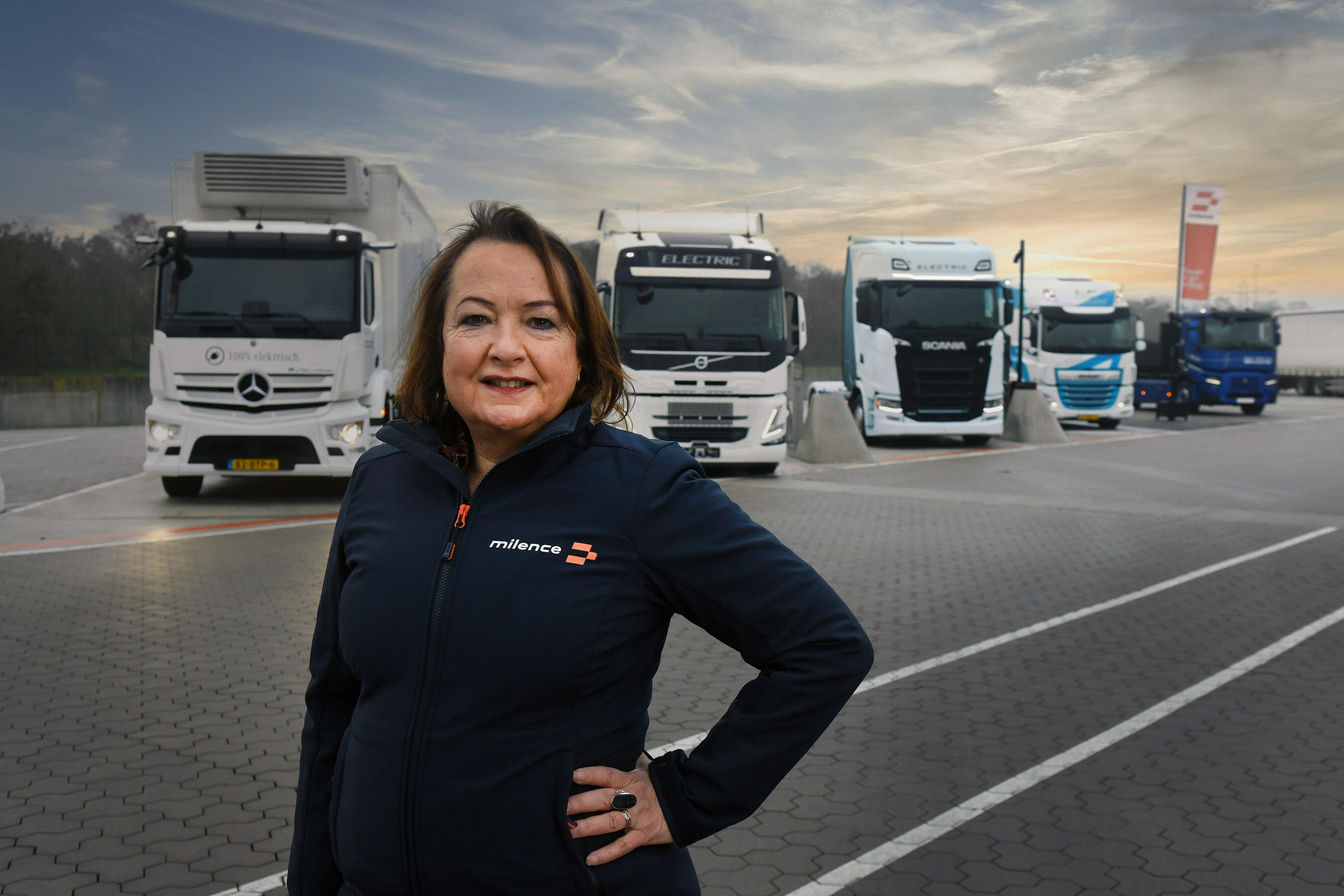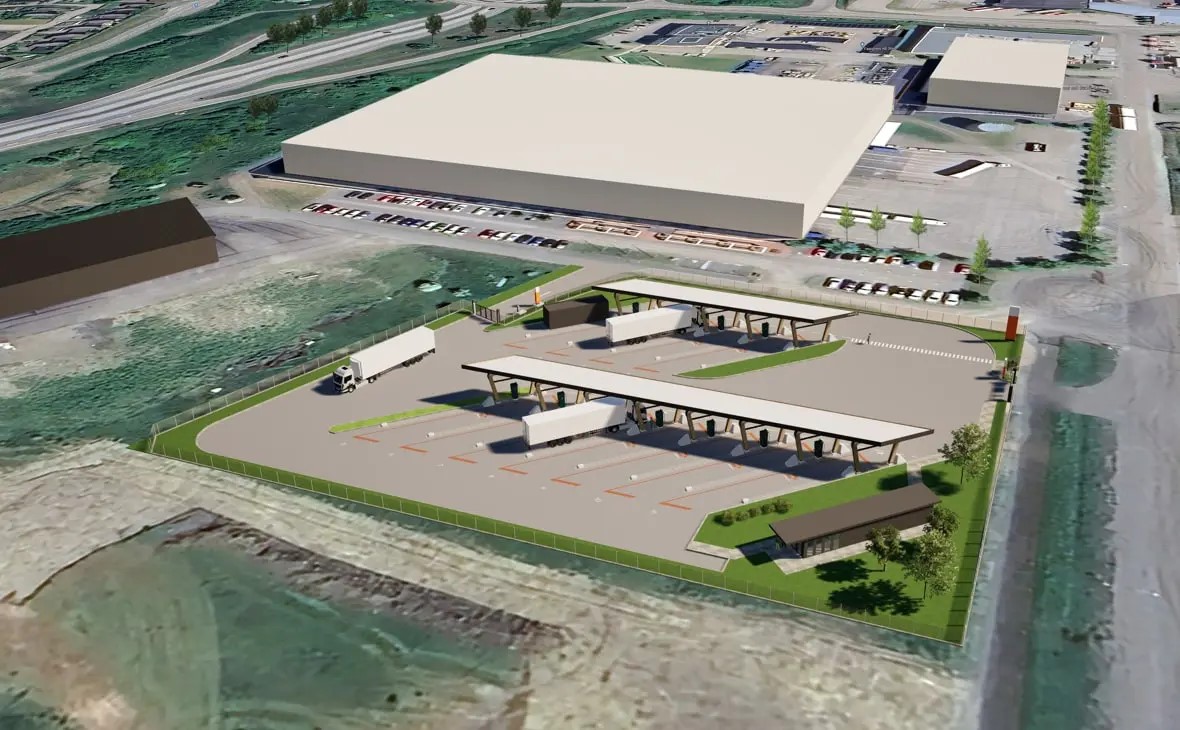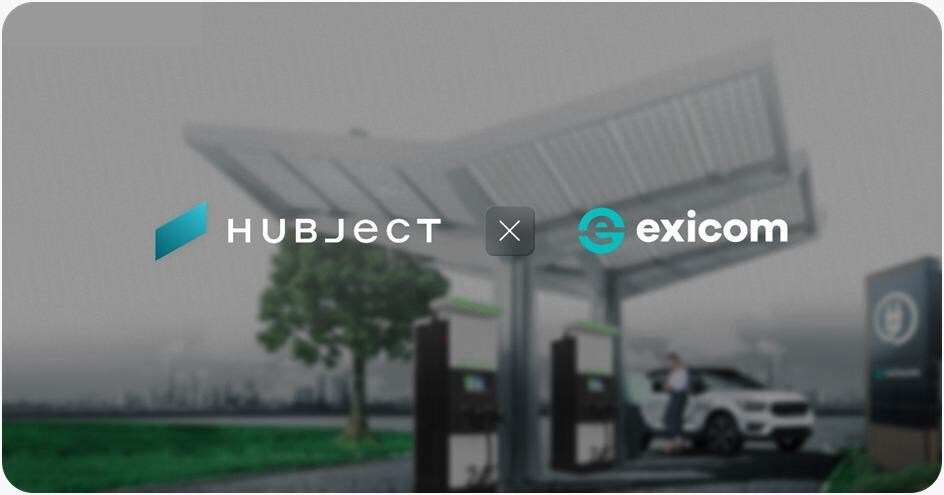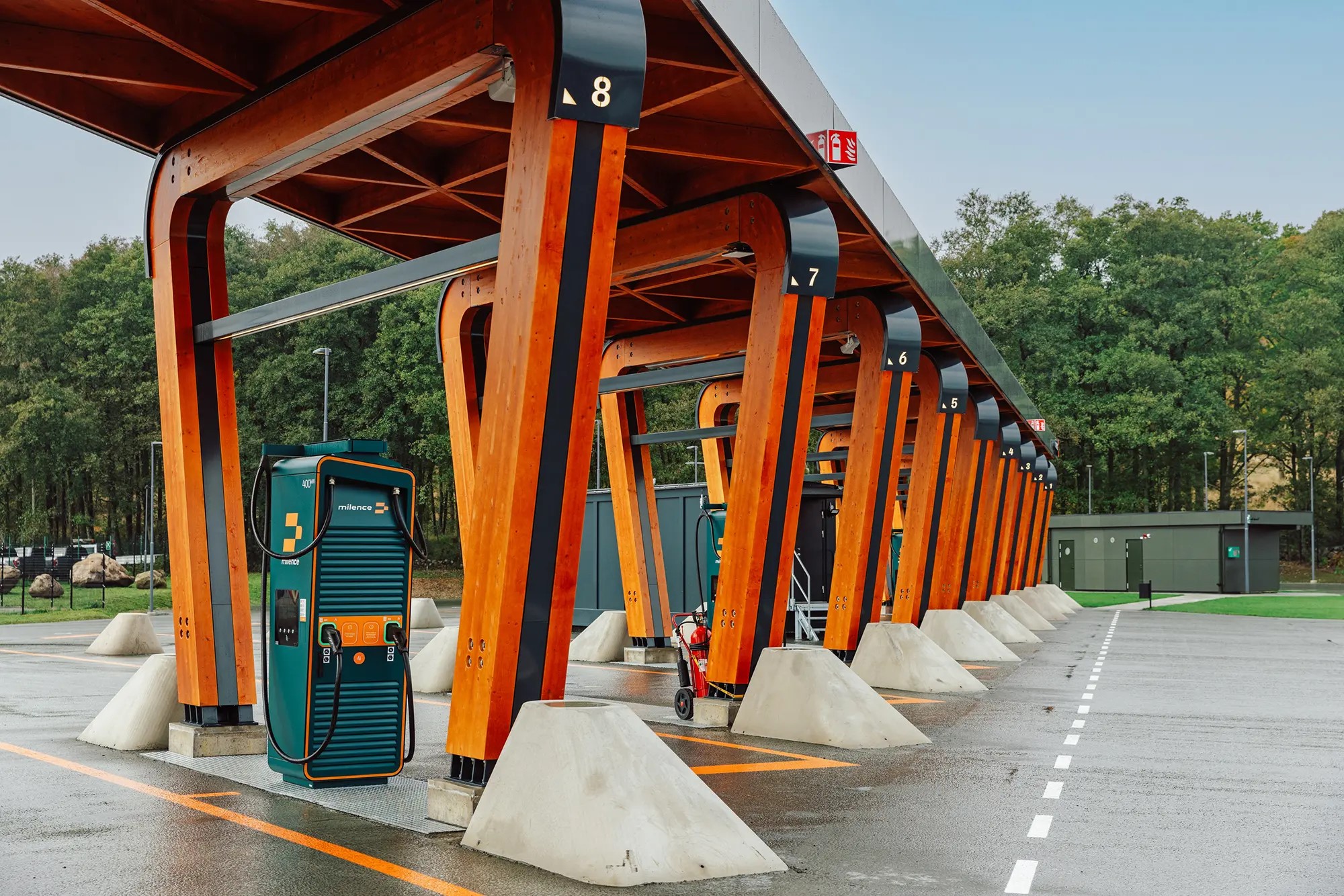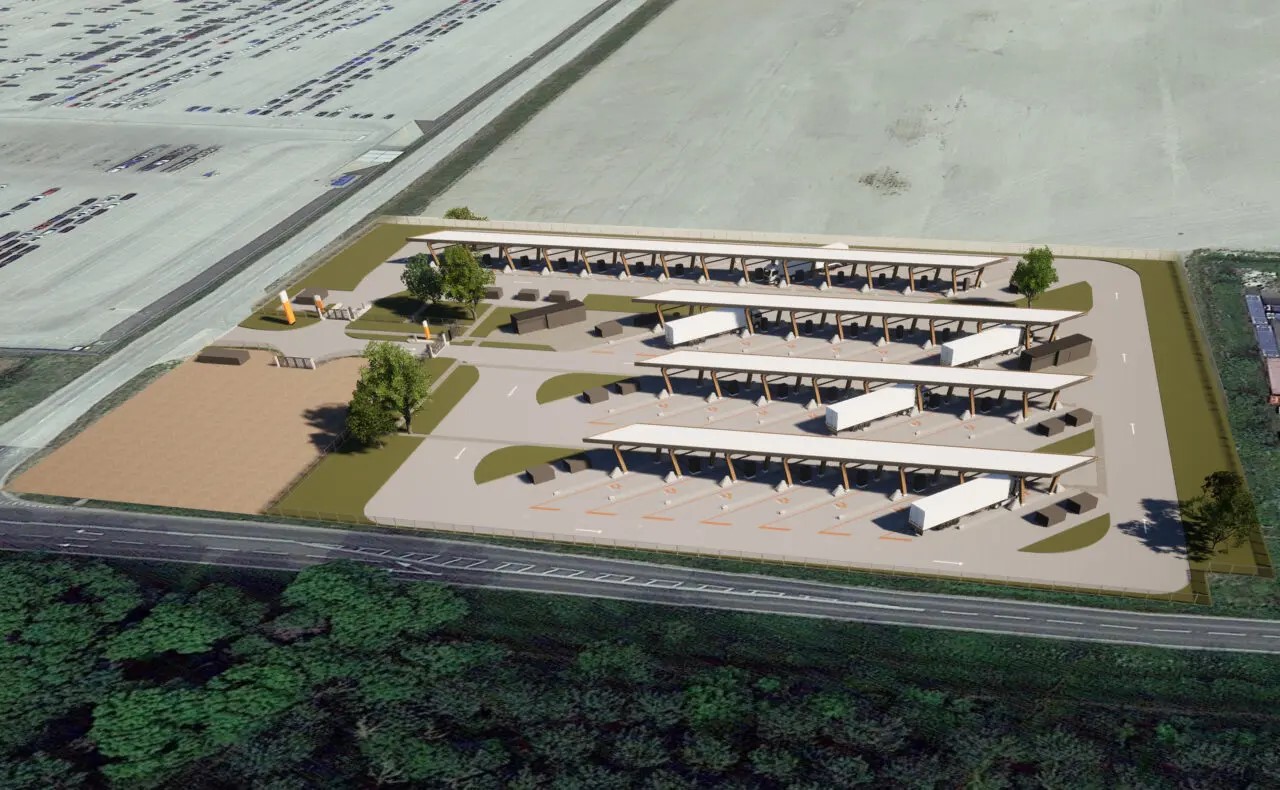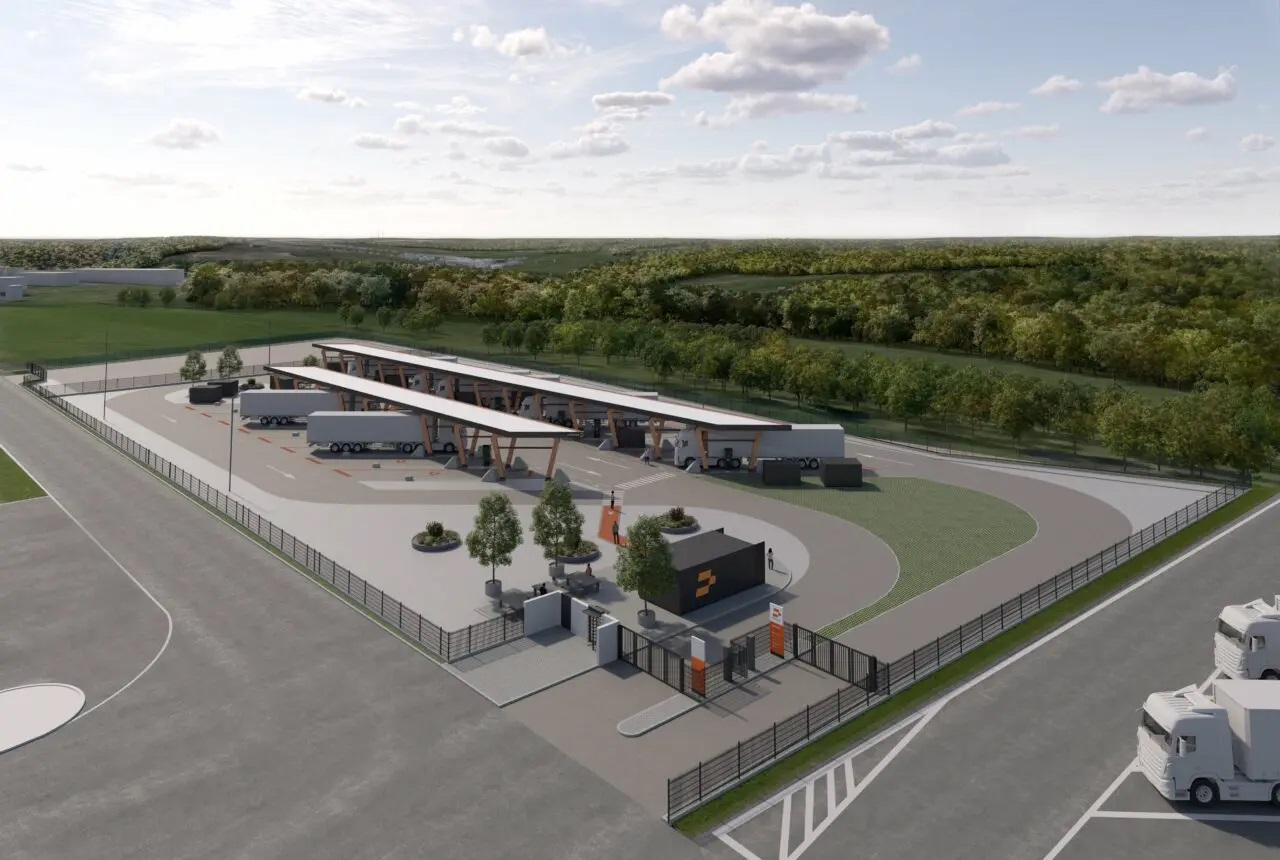
The German charging hubs, located north and south of Leipzig will connect Berlin with southern Germany, reinforcing Milence’s commitment to a fossil-free future for road transport.
The first charging hub will be near Hermsdorfer Kreuz, in Thüringen, strategically located on the A4 between Poland and Frankfurt am Main. The hub is expected to be operational in September 2024 and will allow all trucks, regardless of brand, to recharge.
The second hub, in Vockerode, Sachsen-Anhalt and scheduled to open in July 2024, is strategically located on the A9 between Berlin and Leipzig. Its location next to a new secure truck park will allow drivers to benefit from the best amenities.
Each charging hub will follow a phased development approach. Phase 1 will commence with four charging bays equipped with high-performance Combined Charging System (CCS) chargers, each capable of delivering up to 400 kW of power.
Phase 2 will expand the site with additional charging bays and incorporate Megawatt Charging System (MCS) technology chargers as soon as available for more power and even more reliable charging solutions.
Both charging hubs will offer a range of amenities designed to enhance the driver’s rest and recharge experience.
Milence also announced its second charging hub in France, located in Perpignan. This strategically positioned hub, which will be developed in phases, has a significant geographical advantage. It is situated close to the A9 highway, a strategic logistics route connecting Spain with France and northern Europe.
This announcement follows the opening of Milence’s first charging hub in France, located near Rouen, in April 2024. Both hubs embody Milence’s commitment to a fossil-free future for road transport.
The new charging hub in Perpignan, is under the administration of the Perpignan Town Hall. The city is 40km from the Spanish border, within a key industrial zone in the shipping of fruit and vegetables throughout the region and Europe-wide.
The hub will be developed in phases. In phase one, scheduled for September 2024, charging infrastructure will be built alongside on-site facilities such as toilets and showers. Initially, the hub will feature three CCS (Combined Charging System) charging points powering six bays with up to 400 kW of charging power.
This will be further supplemented in the second phase of development, to increase capacity by adding additional MCS (Megawatt Charging System) charging points. This will significantly boost charging speed and enhance the capacity of the charging hub.



